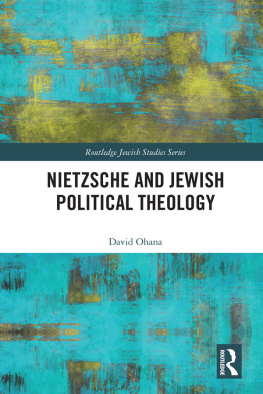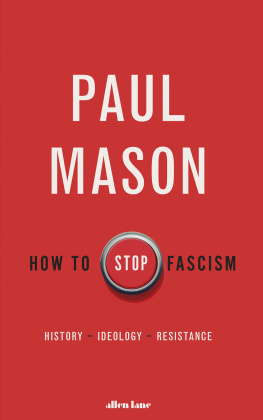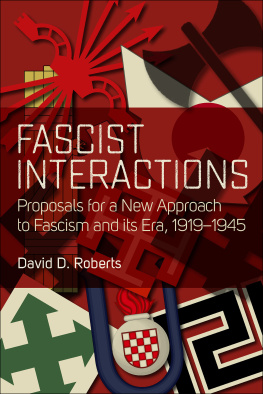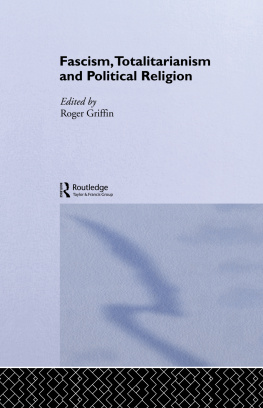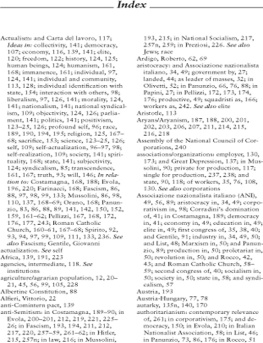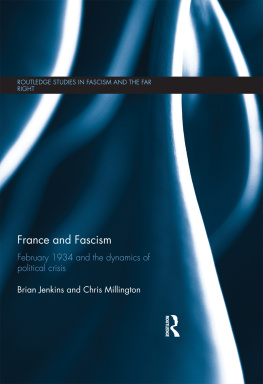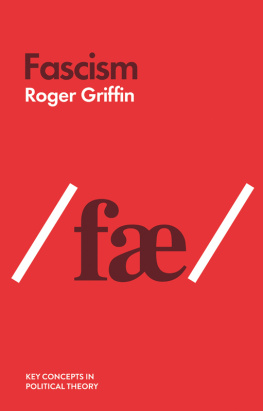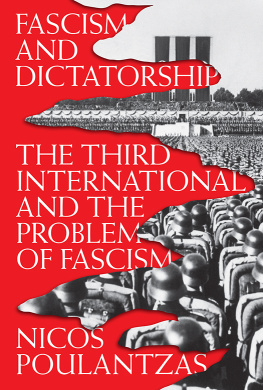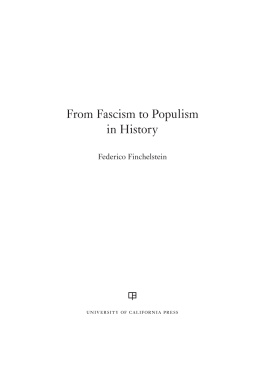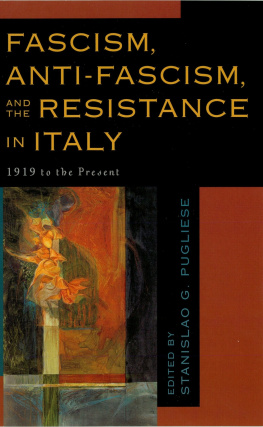The Fascist Temptation
This book posits a new theory of fascism as a radical political community of experience.
The author engages with a range of thinkers both critical of and inspiring fascism including Walter Benjamin, Albert Camus, Ernst Jnger, Carl Schmitt, Friedrich Nietzsche and Martin Heidegger.
This book will be of interest to scholars of the history of political thought, fascism and Nazism.
David Ohana is a Professor at The Ben-Gurion Institute for the Study of Israel and Zionism at Ben-Gurion University of the Negev, Israel, and a Life Member at Clare Hall College at the University of Cambridge, UK.
Routledge Studies in Social and Political Thought
A Marxist Theory of Ideology
Praxis, Thought and the Social World
Andrea Sau
Stupidity in Politics
Its Unavoidability and Potential
Nobutaka Otobe
Political Correctness: A Sociocultural Black Hole
Thomas Tsakalakis
The Individual After Modernity: A Sociological Perspective
Mira Marody
The Politics of Well-Being
Towards a More Ethical World
Anthony M. Clohesy
From Hitler to Codreanu
The Ideology of Fascist Leaders
Carlos Manuel Martins
The Fascist Temptation
Creating a Political Community of Experience
David Ohana
Accumulating Capital Today
Contemporary Strategies of Profit and Dispossessive Policies
Marlne Benquet and Tho Bourgeron
For a full list of titles in this series, please visit www.routledge.com/series/RSSPT
First published 2021
by Routledge
2 Park Square, Milton Park, Abingdon, Oxon OX14 4RN
and by Routledge
52 Vanderbilt Avenue, New York, NY 10017
Routledge is an imprint of the Taylor & Francis Group, an informa business
2021 David Ohana
The right of David Ohana to be identified as author of this work has been asserted by him in accordance with sections 77 and 78 of the Copyright, Designs and Patents Act 1988.
All rights reserved. No part of this book may be reprinted or reproduced or utilised in any form or by any electronic, mechanical, or other means, now known or hereafter invented, including photocopying and recording, or in any information storage or retrieval system, without permission in writing from the publishers.
Trademark notice: Product or corporate names may be trademarks or registered trademarks, and are used only for identification and explanation without intent to infringe.
British Library Cataloguing-in-Publication Data
A catalogue record for this book is available from the British Library
Library of Congress Cataloging-in-Publication Data
A catalog record has been requested for this book
ISBN: 978-0-367-63951-8 (hbk)
ISBN: 978-1-003-13722-1 (ebk)
Typeset in Times NR MT Pro
by KnowledgeWorks Global Ltd.
Contents
Political theorists, cultural critics, sociologists and thinkers continue to be fascinated by the dark magic of fascism. Is it a political regime or a social ideology, an advanced form of capitalism or a dictatorship imposed in reaction to Marxism? An apt expression of modernization, a radical strain of nationalism, a special type of totalitarianism, an alternative revolution or a reactionary modernism, a political institutionalization of the vision of the new man or the authentic personality? These are some of the possibilities suggested by scholars since fascism appeared on the scene of European history in the 1920s of the last century. I should like to make an original addition to this broad range of interpretations.
Perhaps the scholarly difficulties in conceptualizing fascism is precisely evidence of the complexity of this political phenomenon, the multiplicity of its shadings, its capacity for renewal, its cultural character1 and the psychological character2 that distinguishes it from other regimes and ideologies. Perhaps, also, its original conception, which stressed above all the dynamic quality of the fascist movement rather than the analytical-programmatic quality of the ideology or the fixed political nature of the regime, still, at the beginning of the 21st century, continues to characterize the elusive definition of this political phenomenon.3
Many theories of fascism sprang up like mushrooms before, during and after the World War II.4 They are perhaps as numerous as the scholars in the humanities or cultural studies who have examined the phenomenon. This generally does not include historians who trace the history of one fascist regime or another in the historical context of the 20th century, who focus on one unique, specific case, sui generis, and do not claim to formulate a comprehensive theory. Such theories are generally advanced by scholars of political science, sociologists or cultural scholars seeking a comparative typology stressing a common structure more fundamental and significant than the sum of the individual cases. Thus, fascism can be explained as a European phenomenon, a psychological reaction, a cultural revolution or a political construction. The conclusion to be drawn is that fascism is not confined to one transient political era but can also appear in other contexts.
At the centre of this sociological and cultural phenomenon is the group experience connecting its members. This experience does not need any common ideological values but derives its strength from a radicalism without content, an energy without a purpose. Hatred of the other was more a pretext for a collective sense of frustration than a prominent ideological characteristic. I strike the foreigner, therefore I am. We know violence, which means we are a group. This group feeling, without a political objective, creates the aesthetic experience of action-for-action's-sake, a substitute for power, instant meaning. This being the case, fascism is only possible when there is a politicization of a group experience, centred around action, heroism and danger.
The European soldiers of the World War I likewise made the trenches into a community of experience which they used when released as a model for their lives as civilians. Artists, writers and poets saw the mechanized war in which the destructive tools of modern technology were first used as an instructive spectacle which reflected the challenge of group action embodied in a comradeship of fighters. Major intellectuals turned to broad sections of the European middle class, both on the right and left, who were sickened by the weak democracies. The experience of the war was still fresh, and quite a number of released soldiers were spellbound by it and did not know any other way of life. They were disappointed with post-war Europe, with the weak republics, the economic crisis, the decline of the west, the morning after, and in response to all this they offered an authentic human type and a political community from which a new man would emerge.
The Germans, for instance, longed for a rejuvenation of their people. However, the German word Volk differs from the English word people. The terms differ in their historical usage and consequentially in their ordinary meaning as well. It is because of such differences that some of the German terms will henceforth remain untranslated. According to the ideology of the National Socialists, the Volksgemeinschaft included all the members of the race: the dead, the living and the still unborn. A predestined racial essence determined the character of the members.


